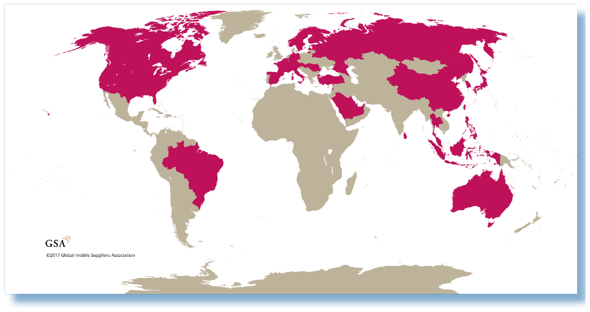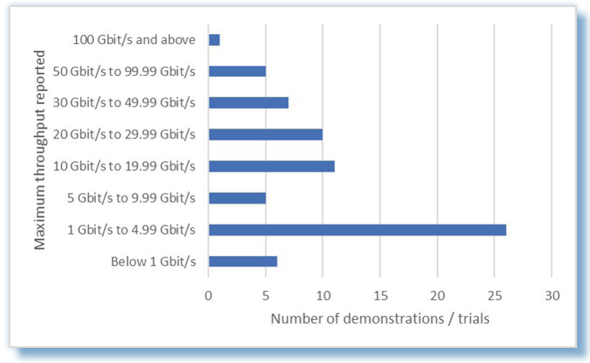 The wireless ecosystem is involved in numerous tests and 5G trials as the pace toward rollout of 5G quickens, according to new data from the Global Mobile Suppliers Association (GSA) about 5G operators. The group’s report on lab tests and field trials suggests that the industry is working hard to meet expected commercialization timeframes.
The wireless ecosystem is involved in numerous tests and 5G trials as the pace toward rollout of 5G quickens, according to new data from the Global Mobile Suppliers Association (GSA) about 5G operators. The group’s report on lab tests and field trials suggests that the industry is working hard to meet expected commercialization timeframes.
5G Trials
The organization says that as of this month it knows of 81 operators in 42 countries that have “demonstrated or are testing, trialing or have been licensed to begin field trials of 5G enabling and candidate technologies,” according to the report. The organization is aware of more than 140 demonstrations, tests or trials.
There are several steps that must be taken before the full vision of 5G is in the field. The GSA reports on trials on some of these steps. The organization makes the point that the 3GPP has not yet finalized standards, so the trials it discusses in the report are pre-standard. The idea, of course, is that the results will be part of a feedback loop designed to create the optimum final standards.

A key challenge of the 5G is that much of it will operate in very high frequencies that have not been used for mass communications previously. They haven’t been because they are inherently challenging. The high number of tests and trials is evidence of a uniform desire to meet those challenges.

The GSA report says that the tests and trials are focusing on a wide variety of new technologies: “Key pre-standards 5G technologies being explored include new radio (NR) interfaces operating in spectrum bands not previously used for mobile telecoms services; network slicing to support delivery of services tailored to specific types of customer or service; combinations of technologies such as massive MIMO, or complex beamforming that are needed to achieve very high speeds; or backhaul, cloud and edge computing arrangements to support very low latencies.”
The GSA says that process standardization for 5G technologies for NR that run alongside existing LTE networks (Non-standalone, or NSA) should be accomplished by March 2018. Standalone (SA) will follow in September 2018.


